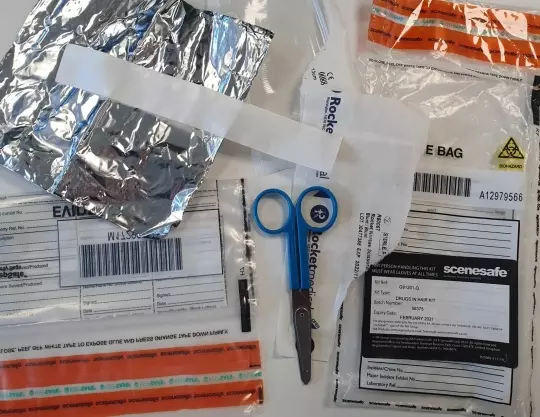A veteran Crime Scene Investigator and PhD student at the University of Portsmouth has been awarded a prestigious Churchill Fellowship grant to tackle the growing issue of plastic waste at crime scenes.
This grant will take her to three continents, visiting Australia, New Zealand, Canada, and Singapore to explore the issue of plastic waste at crime scenes and sustainability measures to improve this.
Becci Henderson, who is also a member of the Revolution Plastics Institute at the University of Portsmouth, has 23 years of experience in crime scene investigation. She has seen a dramatic increase in single-use plastic (SUP) waste at crime scenes.
“Despite the regular consumption of SUPs in the field of forensics, particularly at CSI level, the generation of SUP waste, and the overall sustainability of consumables, has never been addressed,” she explained.
How plastic waste at crime scenes impacts the environment
Henderson generated 2kg of plastic waste at a singular crime scene, much of which was unopened and unused, costing her £78 to replace.
Items such as swabs, exhibit bags, PPE, wipes, and drop sheets contribute significantly to environmental degradation.
Henderson said: “As police forces strive to meet strict ISO accreditation stipulations, the resulting mountain of plastic waste at crime scenes is worsening.
“I want to reduce the reliance on plastic in the CSI and forensic sector, replacing it with sustainable packaging whilst, crucially, maintaining the integrity of the evidence stored within it.”
Innovative solutions to combat the level of waste
The Churchill Fellowship will enable Henderson to learn from international practices and bring innovative solutions back to the UK.
She will investigate how other countries manage plastic waste in forensics, aiming to reduce the environmental footprint of forensic investigations without compromising evidence integrity.
“I’m hopeful that by liaising with these countries and sharing ideas, I can significantly reduce the amount of plastic entering the crime scene sector and come up with solutions to ensure less plastic waste is incinerated or landfilled,” she said.
The future of more sustainable forensics
The findings from other countries will be presented to the UK’s National Scenes of Crime Consumables Board, aiming to influence the design and use of forensic consumables nationwide.
Henderson’s goal is to strip unnecessary plastic from packaging, thereby minimising plastic waste output in the forensic sector and increasing the recyclability of consumables.
The initiative has already attracted interest from other emergency services, highlighting the broader implications of the work.
By targeting unnecessary plastic waste at crime scenes, the project could reduce public monetary waste and set a precedent for sustainability in other public sector organisations.





